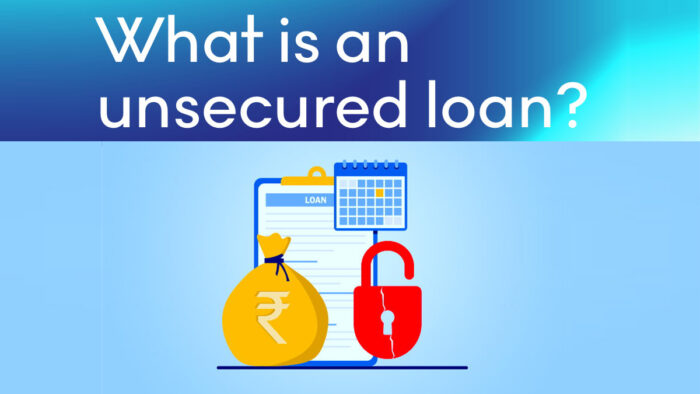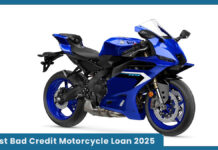Normally, when you apply for a loan, you will be asked to provide collateral in case you are unable to repay the loan. Some lenders will ask for collateral like a house or car, but in the case of an unsecured loan, no such collateral is needed.

Unsecured loans usually range from $1,000 to $50,000. It can be repaid in fixed monthly payments over a set period of time. The payment plan can be for two or five years. However, unsecured loans are offered by credit unions, online personal loan lenders, and banks.
Unsecured loans can be used for different purposes. For instance, it can be used for business expenses, vehicle purchases, vacations, moving expenses, home improvements, credit card refinancing, medical expenses, wedding expenses, and debt consolidation.
What is An Unsecured Loan?
Unsecured loans are loans that do not require collateral. Instead, they are approved based on your finances and credit score. The only thing needed for an unsecured loan is the borrower’s creditworthiness and a promise to repay the loan. Collaterals like a home, savings account, or vehicle are not needed on an unsecured loan.
Types of Unsecured Loans
An unsecured loan is a loan that is not backed by collateral, such as a house or car. It is granted based on the borrower’s creditworthiness and ability to repay. Here are some common types of unsecured loans:
• Personal Loans
Personal loans are a versatile form of unsecured loans that can be used for various purposes, such as debt consolidation, home improvement, or unexpected expenses. The interest rates and terms can vary based on the borrower’s credit history.
• Credit Cards
Credit cards are a form of revolving unsecured credit. Cardholders can make purchases up to a predetermined credit limit and are required to make monthly payments. Interest is charged on the remaining balance if not paid in full by the due date.
• Student Loans
Unsecured student loans are often granted without the need for collateral. These loans are designed to help students cover the costs of education, including tuition, books, and living expenses. Interest rates and terms may vary.
• Medical Loans
Some lenders offer unsecured loans specifically for medical expenses. These loans can help individuals cover the costs of medical treatments, procedures, or surgeries that may not be fully covered by insurance.
• Consolidation Loans
Unsecured debt consolidation loans are designed to help individuals combine multiple high-interest debts into a single, more manageable loan with a lower interest rate. This can simplify payments and potentially reduce overall interest costs.
• Signature Loans
A signature loan is a type of personal loan that is granted based on the borrower’s creditworthiness and their promise to repay, often backed only by their signature. These loans may be used for various purposes.
• Peer-to-Peer Loans
Peer-to-peer lending platforms connect borrowers with individual lenders. Borrowers can often obtain unsecured loans with competitive interest rates, and the application process is typically done online.
• Lines of Credit
While a line of credit can be secured, there are unsecured lines of credit as well. Similar to credit cards, a line of credit provides borrowers with a revolving credit limit that can be borrowed against as needed.
It’s important to note that unsecured loans generally come with higher interest rates compared to secured loans, as the lender assumes a higher level of risk without collateral. Borrowers should carefully consider their financial situation and repayment ability before taking on unsecured debt.
Who Should Get An Unsecured Loan?
Unsecured loans are suitable for people who do not want to provide any collateral. Collaterals are valuable items like a car or house that the lender can repossess if you default on repaying the loan.
Advantages of Unsecured Personal Loans
Unsecured loans have advantages, and as a personal loan borrower, you need to know these advantages.
- Funds can be used for any personal expense, like home improvements, emergency expenses, etc.
- It can help build credit if you make payments on time.
- Fixed monthly payments make it easy to budget.
- There is no collateral required.
One of the disadvantages of an unsecured loan is that it is more expensive than a secured loan.
Where Can I Get An Unsecured Loan?
You can get unsecured loans from credit unions, online lenders, or banks. There are technology-based non-bank companies that offer a small range of lending products, including unsecured loans. There are also many local and national banks that offer unsecured loans as well.
How Do I Qualify For An Unsecured Loan?
If you want to get qualified for an unsecured loan, you need to meet certain requirements. Here are the common personal loan requirements that lenders look out for before you can qualify for a loan.
• Income
One of the things your lenders will look out for is your income. Though there are no specific income requirements, you need to make sure you can afford the loan you are applying for. Lenders will also consider your debt-to-income ratio and your current debt levels compared to your income.
• Credit Score
Lenders will also consider your credit score before you qualify for an unsecured loan. Most lenders will require a credit score of at least 670 to qualify for a personal loan. However, if you have a credit score of 800, you will be fully approved for a loan.
How to Get An Unsecured Loan
Getting an unsecured loan is easy, and it is also a straightforward process. Follow these steps below to get an unsecured loan.
• Check Your Credit Score
The first step is to check your credit score. If you have a credit score between 610 and 640, then you can qualify for a personal loan. However, the most competitive rates are given to those with the highest score of at least 720. To check your credit score, you can use a free online service.
• Evaluate Your Budget
Once you have reviewed your credit score, take time to evaluate your income and expenses. Remember that with an unsecured loan, you will not have any collateral at risk. But late payments will impact your credit score, so you must make sure you are able to pay off new debts.
• Shop for Lenders and Prequalify
After evaluating your budget, the next step is to start shopping for lenders. Look for lenders that offer the most competitive APRs and flexible repayment terms. The good news is that many lenders offer borrowers a quick and easy online prequalification process.
• Gather Documentation
After successfully finding a lender, you can now gather all your documentation, like tax returns or W-25, before you apply. This can hasten the application, approval, and funding process.
• Submit a Formal Application
Submitting a formal application is the final step. You can now complete a loan application and submit it online or physically. The application process varies for different lenders with different application methods. So you have to find out how your lender wants the application to be done.
FAQs
Are Unsecured Loans Safe?
Of course, unsecured loans are safe. The reason it is called an unsecured loan is because it doesn’t require you to provide collateral.
Do Unsecured Loans Go on Your Credit Report?
Yes, it does. Unsecured loans, along with secured loans, will appear on your credit report. However, this also means that since they appear on your credit score, they will also impact your credit score.
Are Personal Loans Secured or Unsecured?
Personal loans can be either secured or unsecured. But normally, it is unsecured.
What Happens If I Default on an Unsecured Personal Loan?
If you default on an unsecured loan, your credit score will be reduced. And if your credit score is reduced, it will be difficult to qualify for any other loan, and it can also affect your credit score negatively for a long time.



